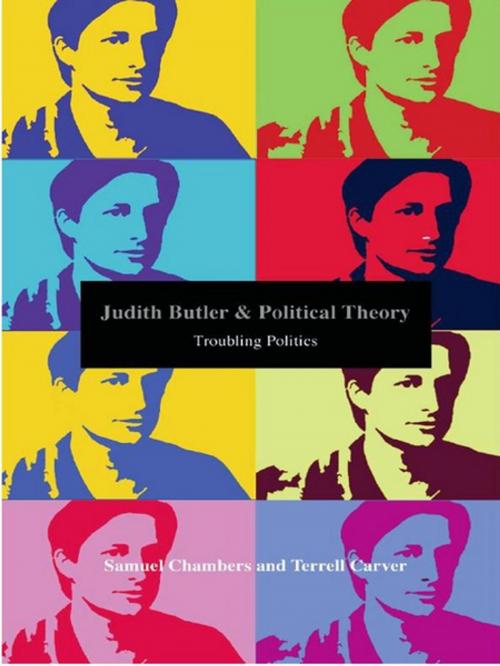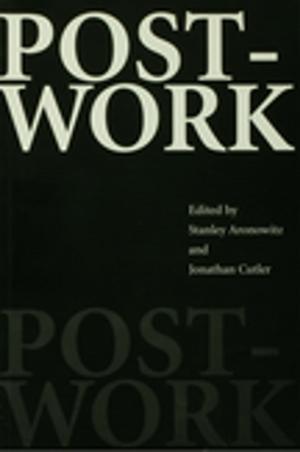Judith Butler and Political Theory
Troubling Politics
Nonfiction, Social & Cultural Studies, Political Science, Politics, History & Theory| Author: | Samuel A Chambers, Terrell Carver | ISBN: | 9781135989606 |
| Publisher: | Taylor and Francis | Publication: | January 23, 2008 |
| Imprint: | Routledge | Language: | English |
| Author: | Samuel A Chambers, Terrell Carver |
| ISBN: | 9781135989606 |
| Publisher: | Taylor and Francis |
| Publication: | January 23, 2008 |
| Imprint: | Routledge |
| Language: | English |
Over the past twenty-five years the work of Judith Butler has had an extraordinary impact on numerous disciplines and interdisciplinary projects across the humanities and social sciences. This original study is the first to take a thematic approach to Butler as a political thinker. Starting with an explanation of her terms of analysis, Judith Butler and Political Theory develops Butler’s theory of the political through an exploration of her politics of troubling given categories and approaches. By developing concepts such as normative violence and subversion and by elaborating her critique of heteronormativity, this book moves deftly between Butler’s earliest and most famous writings on gender and her more recent interventions in post-9/11 politics.
This book, along with its companion volume, Judith Butler's Precarious Politics, marks an intellectual event for political theory, with major implications for feminism, women’s studies, gender studies, cultural studies, lesbian and gay studies, queer theory and anyone with a critical interest in contemporary American ‘great power’ politics.
Over the past twenty-five years the work of Judith Butler has had an extraordinary impact on numerous disciplines and interdisciplinary projects across the humanities and social sciences. This original study is the first to take a thematic approach to Butler as a political thinker. Starting with an explanation of her terms of analysis, Judith Butler and Political Theory develops Butler’s theory of the political through an exploration of her politics of troubling given categories and approaches. By developing concepts such as normative violence and subversion and by elaborating her critique of heteronormativity, this book moves deftly between Butler’s earliest and most famous writings on gender and her more recent interventions in post-9/11 politics.
This book, along with its companion volume, Judith Butler's Precarious Politics, marks an intellectual event for political theory, with major implications for feminism, women’s studies, gender studies, cultural studies, lesbian and gay studies, queer theory and anyone with a critical interest in contemporary American ‘great power’ politics.















